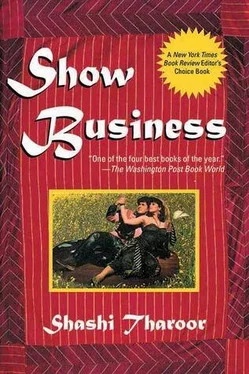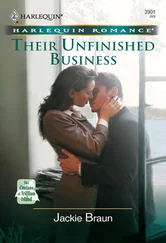You are not real. None of you is real. This is not real. Only the pain is real. And me, I am not real either, and I will never be real again.
I am seeing you all now in flash forward, and you are out of focus, the print is overexposed, the celluloid has caught fire, for God’s sake do something, do something about this pain. Your shadows interweave with the flames in my mind, your silhouettes shift on the walls in a spectral dance, the flames flicker in your eyes and garlands of fire encircle my brain, I am falling now endlessly through the flames, in their illumination I see you all again, a funeral procession of fluttering shadows, the pain is gone now, in its place there is the limpid clarity of darkness and glowing and shadow and fire, always the fire, the final fire that will shoot me to the sky.
But not yet. Someone will find out how to stop the pain, someone will find out who did it, someone will arrest the villain for the crime, someone will find the lyrics to the theme song, someone will gather the crowds for a joyous celebration, and then, only then, as the flames flicker and the shadows dance and the people in the twenty-five-paisa seats applaud and whistle and the stories merge and melt and dissolve in the heat, only then will it be, only then can it be,
THE END.
While the meanings of most of the Indian words used in the text should be apparent from their context, a glossary may be of interest to some readers. The words defined below are, unless otherwise specified, from Hindi, the language of the Bollywood films featured in the novel.
abhineta —actor
adharma —unrighteousness; opposite of dharma
advaita — a system of Hindu philosophy
arreé[slang] “hey!”
bachcha — child
bahu —bride, daughter-in-law
beedis —small Indian leaf cigarettes
bété —son
beti —daughter
bhai, bhaiya —brother
bhajan —devotional song
bharata natyam —a popular system of South Indian classical dance
Bong —[Indian-English slang] Bengali
chakkar —[Hindi slang usage] business
chamcha —sycophant, hanger-on
chappals —slippers
chaprassi —peon, gofer
chawal —rice
chawl —slum settlement
chowkidar —gatekeeper
churidar —tight pajamas
churidar-kameez —outfit of tight pajamas and loose shirt
daal —lentils (an Indian staple). Daal-chawal is the Indian equivalent of bread and butter.
dada —[slang] tough guy
desi —domestic (in the national sense), indigenous
dhaba —roadside tea-and-snack stall
dharampati [formal usage] husband
dharampatni [formal usage] wife
Diwali —the Indian festival of lights
dry day —[Indian-English usage] a day when the sale and public consumption of liquor is forbidden
dupatta —a long scarf worn by women with the salwar-kameez and similar outfits
ganwaari —village girl
ghagra —Indian skirt
gherao —a form of protest picketing that imprisons the target, who is surrounded by demonstrators
godown —warehouse
gunas —good qualities
gurudwara —Sikh temple
jamaatkhana —place of meeting and worship for some Muslim sects
jee-huzoor —“yes, sir”
jhamela —mix-up
judai —a bond, a twinning
Kalki —Indian mythological figure, the tenth avatar of Vishnu, who will be incarnated on earth at the end of Kaliyug to destroy the world
kameenay —[an insult] third-rate fellow; scoundrel
kameez —loose shirt
kanjoos —miserly
karma-yoga —the yoga of action; one of the principal ethics derived from the Bhagavad Gita
khadi —homespun (worn by Indian politicians as a symbol of nationalist simplicity)
lakh —100,000
lathis —staves, usually of bamboo, used by Indian police in crowd control
maal —[slang] goods
maha —big, great
Mahabharata —ancient Indian verse epic
masala —spice
mastaan —hood, thug
mela —fair
moomphali-wallah —peanut seller
muhavrein —idiomatic expressions, proverbs
musafir —traveler
naraka —hell
neem —margosa tree, whose twigs are used to clean teeth
neta —leader
paan —Indian digestive of leaf and spices, chewed usually after meals
paglee —madwoman
pahelwans —wrestlers, tough guys
paisa —the smallest Indian coin (100 paise = i rupee, about 4 U.S. cents today)
pallav —the loose end of the sari, draped over the wearer’s shoulder
Patthar aur Phool —[imaginary film title] “The Stone and the Flower”
pau-bhaji —Indian snack
payal —anklet
Puranas —ancient Sanskrit texts
salwar-kameez —outfit of loose pajamas and loose shirt
seedhi-saadhi —[slang] straightforward, innocent
shabash —“congratulations,” “well done”
shastras —ancient religious texts
slokas —ancient religious verses in Sanskrit
Valmiki Ramayana —sacred Indian epic of the god Rama, as told by Valmiki
yaar —[slang] pal, friend
Ya Khuda —“Oh, God!”
zamindari —a feudal system of land tenure in which tenants tilled land for a zamindar, or big landowner
zindabad —“long live”
My research into the Bombay film world was made possible in great measure by Mr. P. K. Ravindranath, Press Adviser to the Chief Minister of Maharashtra, to whom I am most grateful. My thanks, too, to the able and cooperative officials of Film City, Bombay, who gave me detailed access to their sets, studios, and locales, and to the film crews who allowed me to intrude upon their work. My research would not have been possible without the help and hospitality of the Parameshwars of Bombay: thank you, Valiachan and Valiamma, Viju and Anita. I should also like to acknowledge the filmi magazines of India for providing much grist for my fictional mill and to pay particular tribute to Malavika Rajbans Sanghvi for her witty and perceptive feature articles on Bollywood in the nonfilmi media. Of course, I remain solely responsible for what I have made of the material.
“Ashok Banjara” was invented in 1972 by a subeditor at JS magazine in Calcutta, Narayan Ojha, who thought my too-frank campus journalism warranted a pseudonym. Tragically, Narayan did not live to see his creation acquire new life in these pages, but the name of my protagonist is a small tribute to this fine journalist and greathearted human being.
My thanks, too, to Jeannette Seaver, David Davidar, Ann Rittenberg, and Nandita Agarwal for valuable editorial advice and invaluable positive reinforcement; to Deborah Rogers, for her faith and support; and to Professor P. Lal, for a verse from the Valmiki Ramayana .
My parents, Chandran and Lily Tharoor, were, as always, a precious source of inspiration and encouragement: to them I shall always be grateful. My wife, Minu, read the manuscript with her usual care and insight; I cannot thank her enough for her patience and understanding. As I wrote the book my sons, Ishan and Kanishk, were constantly in my thoughts, but not in my vicinity; otherwise, as the old saw goes, this book would have been finished in twice the time.












